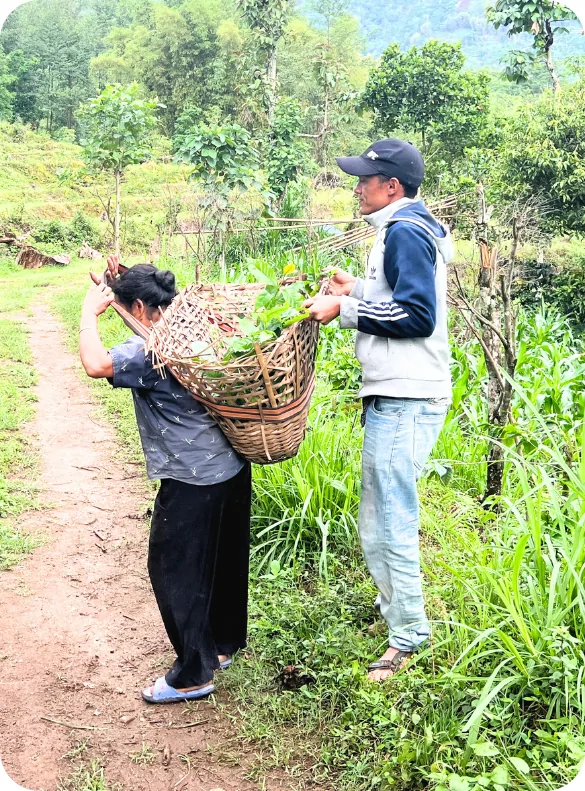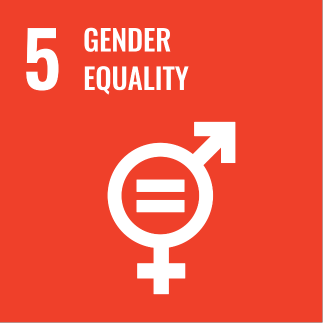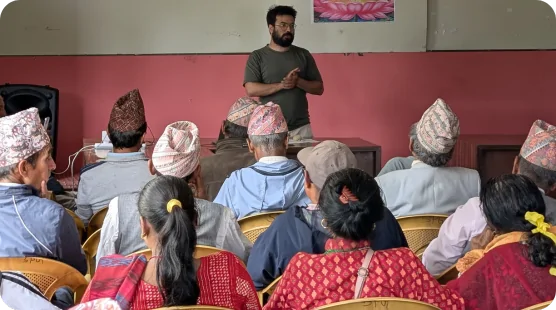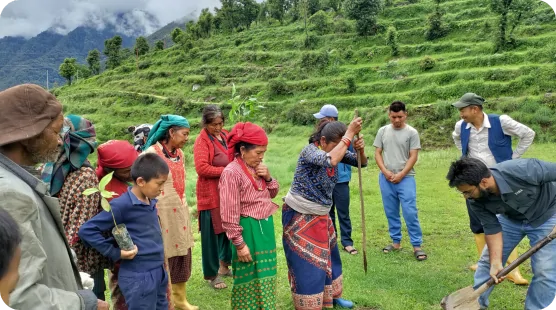Agroforestry Carbon Program for Resilient Himalayan Communities
NATURE-BASED SOLUTIONS
Project Overview
The project is restoring 6,430 hectares of fallow lands in Nepal’s mid-hill and Terai regions through agroforestry. By introducing diverse horticulture and silviculture tree species, it builds climate resilience, boosts carbon sequestration, and diversifies farmer incomes. Over 30 years, it will generate Gold Standard-verified emission removals (GS VERs), while carbon credits while addressing land degradation, soil erosion, and biodiversity loss.
Key Objectives
Restore degraded fallow lands through sustainable agroforestry models

Enhance soil fertility, biodiversity, and ecosystem services.

Strengthen gender inclusion, enabling women’s leadership in plantation and community governance.


Project Details
Title:
Agroforestry Carbon Program for Resilient Himalayan Communities
Type:
AFOLU ARR (Afforestation, Reforestation, and Revegetation)
Project Location:
Mid-hills & Terai region, Nepal
Duration:
30 years
Carbon Standard:
Gold Standard
Methodology: A/R Methodology – GHG Emissions Reduction & Sequestration, v2.1
Certification Status:
Listed; Under Validation

Partnerships and Stakeholders
Implementation Partner:
The Green Intelligence, Nepal
Role of Community:
Farmers restore their own lands by planting and maintaining trees, earning from produce sales and carbon revenue sharing. The Green Intelligence app enables geotagging, payments, and transparent monitoring.
Projects Impact
Annual Impacts (Key Metrics)

1,995,505 tCO₂eq
EXPECTED CARBON CREDITS

66,517 tCO₂eq
AVERAGE ANNUAL CREDITS
Over the project period
Our Recent Initiatives
Strengthening Rural Livelihoods of Smallholder Farmers in Tribal Districts of Odisha
Grouped Commercial Vehicle EV Project in India
Grouped Water Purification Projects in India
Alignment with SDGs




Community Impact
- Diversifies incomes through sale of fruits, nuts, fodder, and spices.
- Builds resilience for rural households through new livelihood streams.
- Actively involves women in plantation, training, and leadership roles.


Climate Impact
- Restores degraded landscapes, improving soil health and water retention.
- Sequesters ~2 million tonnes of CO₂ across the project lifetime.
- Contributes to climate change mitigation and biodiversity restoration.
Challenges & Solutions
Problems Addressed by the Project:
Abandonment of farmland due to migration and low productivity.
Soil degradation, erosion, and reduced biodiversity in mid-hills and Terai.
Implemented Solutions:
Agroforestry plantation of fruit, nut, fodder, and spice species suited to local ecology.
Carbon finance to make plantations viable and sustainable.
Digital monitoring via Green Intelligence app for transparency and farmer incentives.
